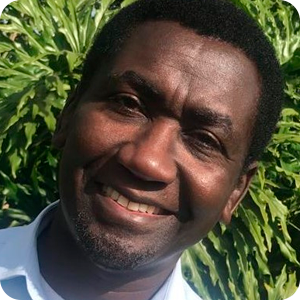The 29th UN Climate Change Conference (COP29) ended in November 2024, but its echo is still in the air. The main goals of the Baku summit were to make progress in the global struggle against climate change, but it did not take too long after its opening for the debates to start. While some countries called for more focused discussions about the transition from fossils to renewables, others, mainly oil and gas-producing countries, wanted to limit the discussions about last year’s COP28 agreement and focus on money. It was finally agreed that rich countries would pay developing countries US$300 billion a year by 2035 to help them to cope with the effects of the climate crisis but this is four times lower than the US$1.3 trillion per year that was previously agreed. We approached several climate experts to seek their opinions on the conclusions of the 2024 climate change conference. Check out their insights below.
Key Takeaways:
- On November 25, 2024, the 29th Conference of the Parties of the UN Framework Convention on Climate Change (COP29) ended in the capital of Azerbaijan, Baku. The event ended three days later than planned.
- According to experts, the US$300 billion annual climate finance package approved during COP29 requires significant financial reforms to ensure developing countries can simultaneously tackle poverty, climate crises, and energy transitions without increasing debt burdens.
- Developing countries in Africa will have to mobilize more revenue in taxes than in aid to achieve their development priorities because there is significant potential to increase revenue by closing the loopholes caused by corruption.
- Experts also consider that the rise of confrontational activism has the potential to positively influence the effectiveness of negotiations and the achievement of equitable climate solutions.
DevelopmentAid: How can the international community ensure that the US$300 billion per year climate finance package is sufficient to address the needs of developing nations, especially when it combines grants and loans?

“COP 29’s US$300 billion annual climate finance package can address the needs of developing countries through the transformation of the governance of the international financial architecture to make it more efficient and more equitable. In this way, developing countries do not have to choose on a daily basis between investing in the fight against poverty, climate and the energy transition, and repaying their debt. In line with the United Nations Secretary-General’s Sustainable Development Goals Stimulus, aimed at ensuring that developing countries do not find themselves having to “choose between fighting poverty and fighting for the planet”, Multilateral Development Banks should include suspension clauses in contracts in the event of a climate catastrophe as has happened in Zambia. The World Bank should use the new tools that it has adopted to provide US$157 billion in additional lending of hybrid capital, a portfolio guarantee mechanism, and an adjusted loan-to-equity ratio to liquidity needs for disasters that reschedule loan maturities. Such support would protect developing countries from escalating climate impacts if the “Baku to Belém Roadmap” of raising a trillion dollars is to be achieved. Also, developing African countries will have to mobilize more revenue in taxes than in aid to achieve their development priorities because great potential exists for sealing the revenue loopholes arising from endemic corruption. The African Development Bank estimates that African governments could raise an additional US$300 billion in tax revenues yearly.”

“The US$300 billion commitment falls drastically short of the amount needed to support transition and adaptation efforts in the Global South. The agreement depends heavily on contributions from the private sector which has a vital role in financing the cross-sectoral transformational changes needed for a low-carbon, climate-resilient future. The challenge, therefore, lies in how to maximize the impact of this capital, and how we innovate to unlock more. Many have raised valid concerns about adding to the debt burden of heavily indebted, highly vulnerable countries to fund global common goods. It is crucial to design interventions that ensure grants and concessional loans deliver the greatest possible impact. The allocation of concessional capital should be prioritized for markets and sectors that face significant barriers to investment, ensuring resources are directed to areas of greatest need. This also prevents crowding out private investment in commercially viable sectors such as solar and wind energy, effectively mobilizing private finance for these opportunities. Ensuring the affordability of commercial capital is essential to scaling it equitably. De-risking mechanisms, such as guarantees issued by the Green Guarantee Company, managed by the Development Guarantee Group, will improve access to global institutional investors and, importantly, can extend the tenure of commercial loans. This reduces borrowing costs, frees up capital on borrower balance sheets, and enables further investments to scale climate action.”
DevelopmentAid: One very noticeable trend at COP29 was the stance taken by many environmental NGOs and campaigners. How can the rise of confrontational activism at climate conferences impact the effectiveness of negotiations and the achievement of equitable climate solutions?

“The need for diverse voices from all levels of stakeholders and decision-makers towards ensuring equitable, transparent, and accountable climate negotiations cannot be understated. There is an ethical case for diversity in decision-making spaces because ‘diverse, inclusive processes make better representative decisions’. The confrontational stance taken by many environmental NGOs and campaigners was intended to demand action and accelerate the action on the climate crisis towards obtaining maximum climate finance although this was not achieved. The rise of confrontational activism ‘where there is no violence’ has the potential to positively impact the effectiveness of negotiations and the achievement of equitable climate solutions. Strategic activism paves the way for a global space, potentially leading to increased awareness of environmental degradation, the prevention of harmful actions and pushing for economic and political shifts toward climate change mitigation resolutions. The activism of NGOs has raised the tempo for public debate where negotiations have tended to inhibit it because negotiations have taken place in high-level conference rooms away from the communities who are most impacted by climate change. However, NGOs will need to employ effective strategies to impact negotiations and influence their governments’ positions before and during negotiations. ‘Gung-ho’ demonstrations and excessive confrontation can deter governments from hearing their important messages and risk being less impactful.”
Despite the considerable efforts to fight climate change, progress is still very slow. There is a need for joint efforts, knowledge, accountability, and actions to reduce fossil fuels and achieve the SDG goal of limiting global warming to 1.5°C above pre-industrial levels. While this is a challenge for humanity, it is also an opportunity for climate experts to leverage their skills in this regard. On the DevelopmentAid job board, experts can find hundreds of openings in the environment sector, plenty of grants and tenders for individuals, and also the contact information for organizations operating in this field. These and many other options are available with a single Individual Professional Membership package.

